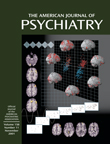To the Editor: Gerard G. Gagne, Jr., M.D., et al.
(1) reported the efficacy of combined antidepressant therapy and continuation ECT using a retrospective, case-controlled study design. The results obtained and conclusions drawn, however, merit further consideration.
Patients with a current episode of chronic major depression were recruited, and all responded satisfactorily to the acute ECT protocol. This fact should be highlighted because patients with chronic major depression have a rate of response to pharmacotherapy of 45%–55%
(2). ECT per se could be an effective therapeutic modality for this subgroup of patients with depression.
Both the groups participated at least two adequate antidepressant trials before the index ECT, which increased the likelihood of their having treatment-resistant depression. According to the data presented, many patients may actually have had treatment-resistant depression. The literature suggests that patients with treatment-resistant depression who have a good response to an acute trial of ECT may improve more with continuation ECT
(3), an uncontrolled but important observation in this study.
An important methodological limitation was the lack of an objective measure (e.g., the Hamilton Depression Rating Scale) for assessing the initial severity of depression and monitoring response to treatment. Bias reduction was attempted by retaining consensus validation, but bias cannot be fully ruled out if the clinician administering ECT is involved in decision making and in assigning clinical ratings.
The patients were shifted after an acute trial of ECT to either of two groups on the basis of clinical response, i.e., “the core depressive symptoms necessitating hospital admission were much or very much improved”
(1, p. 1962). This definition of symptom improvement, apart from not being terribly objective, did not confidently and clearly differentiate “response” from “recovery.” Imprecision in terminology in distinguishing clinical response from recovery has been a major caveat in ECT research
(4). Because of this not-so-precise definition of recovery and the possible presence of patients who were slow to respond
(5), the patients may have had a premature termination of acute ECT.
Comorbid personality traits or disorders are known to influence the development and treatment of chronic major depression
(6). Also, to minimize relapse, antidepressant therapy in the continuation phase should have been different from that employed in the pre-ECT phase
(7). Information on these aspects of treatment can influence the interpretation of results.
Continuation ECT is associated with memory impairment
(7). Although its efficacy has been demonstrated, its clinical effectiveness cannot be ascertained until analysis of this variable and the associated risk-benefit ratio are discussed. Additional limitations to generalizability of the study results were that nearly 50% of the patients in the comparison group were unavailable for analysis at the 2-year follow-up, and the study group comprised patients with severe chronic major depression (and not every subtype of depression).
Caveats and criticisms are associated with any retrospective study. An attempt has been made to highlight some issues pertinent to ECT research. This should in no way dilute the importance of this study in dealing with one of the poorly researched aspects of ECT.

